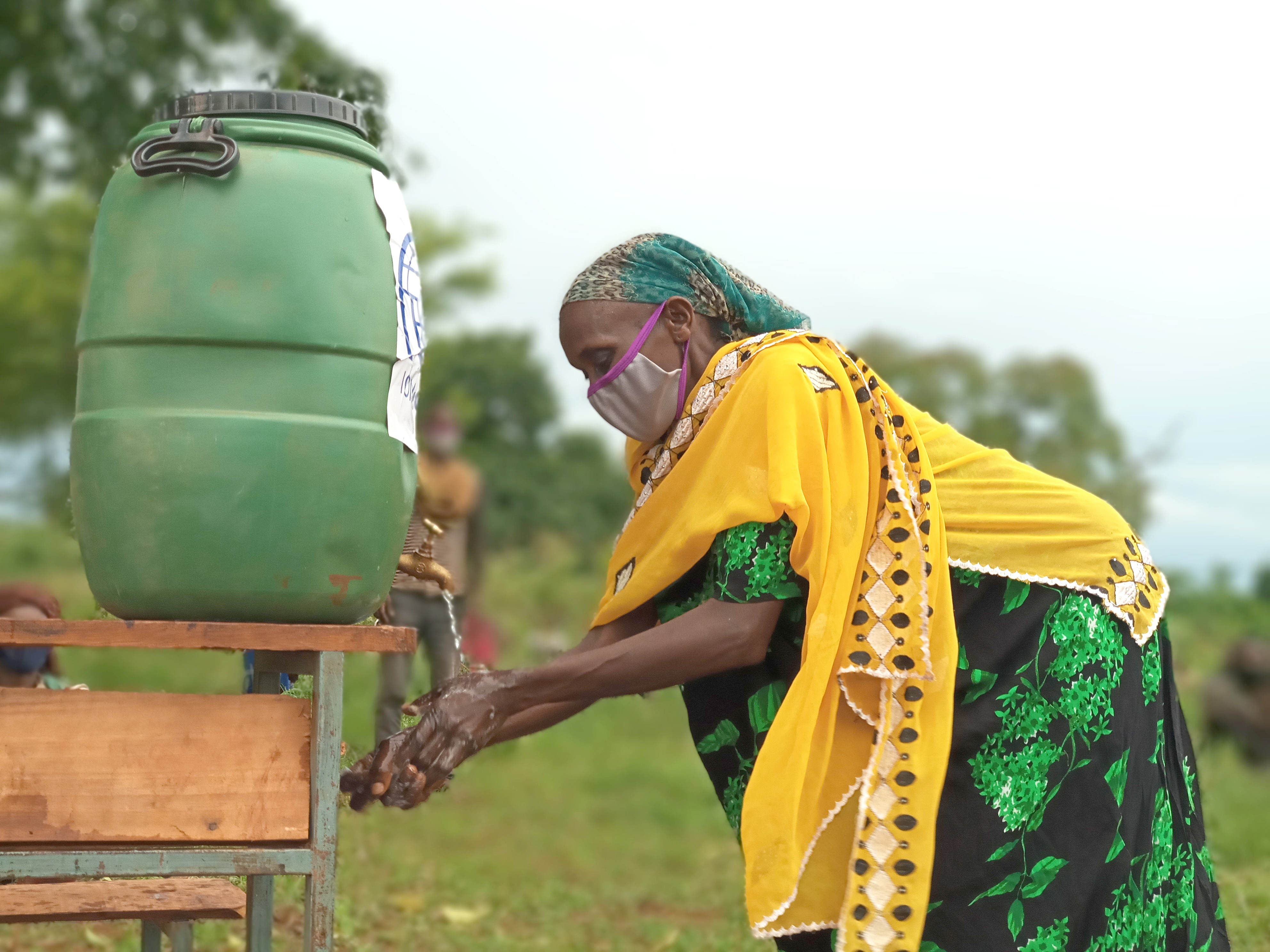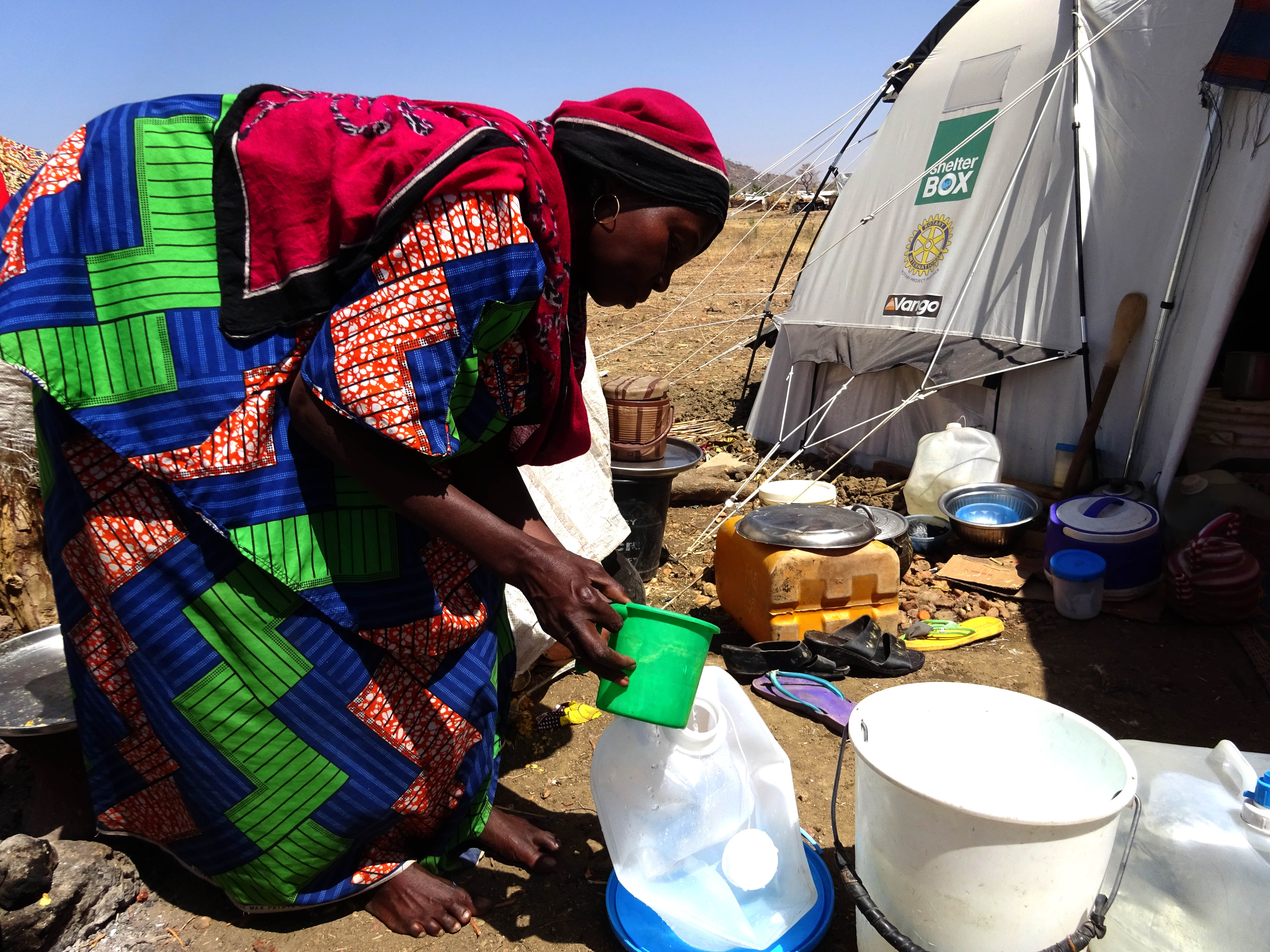
Clean water is a human right
Water, just like shelter, is a human right. Whoever you are, wherever you are – you are entitled to clean, safe water.
Today, billions of people around the world do not have access to safe drinking water.
When disasters devastate whole communities and force families far from home, it can be hard to ensure access to clean water.
Families often find themselves in inhospitable areas or overcrowded camps where finding safe water is a daily struggle.
By providing families with water containers and water filters, we can make safe drinking water one less thing to worry about.
Why is clean water important?
A person’s survival depends on access to clean, safe, drinkable water.
Unsafe drinking water can lead to illness and can also spread deadly diseases. After a flooding event cholera threatens the health of those just trying to survive disaster.
When families are unable to access clean water, water filters enable them to produce safe drinking water.
Water filters can remove viruses, bacteria, and pathogens that can be found within contaminated water, as well as chemicals, heavy metals, and fecal matter. The water filters ShelterBox distributes to families can turn up to 1000 liters of unsafe water into clean, safe, drinkable water.
Families need your help. You can turn contaminated water into a safe drinking source by making a donation today! You can help families survive disaster with the gift of clean water. Water is a Human Right – will you give someone water today?
Donate now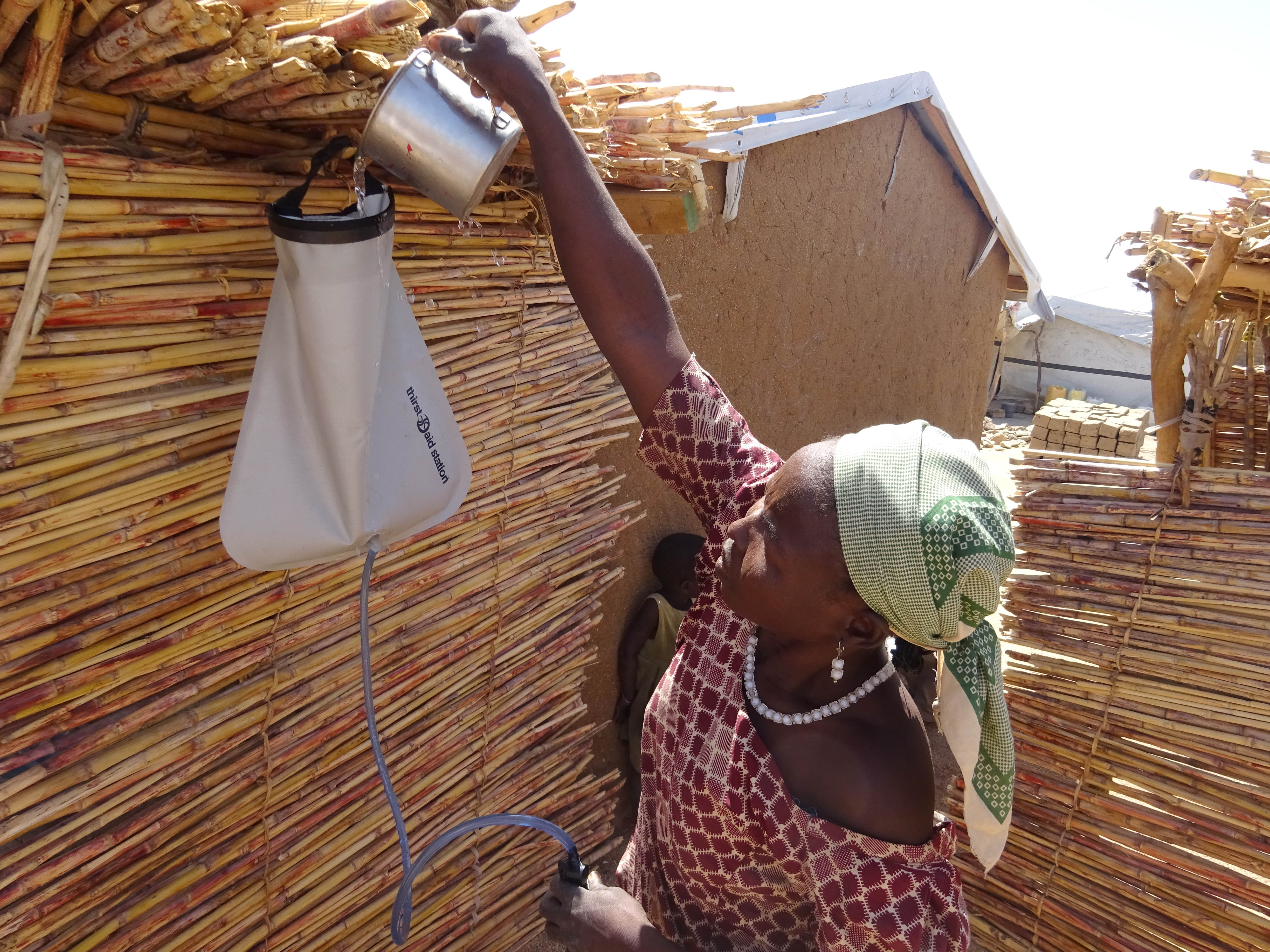
Maïramu’s story
After fleeing Boko Haram attacks on her village in Konduga, Nigeria, Maïramu now lives in Minawao Camp with her seven children.
41% of the world’s refugees do not have access to safe drinking water. Maïramu and her family are some of them.
They must get up early and travel long distances to access water, but travel isn’t the only issue. The water they have is dirty.
We started to get sick. After a while, I noticed that my children and I were having frequent stomach aches and diarrhea. I realized it was caused by the water.
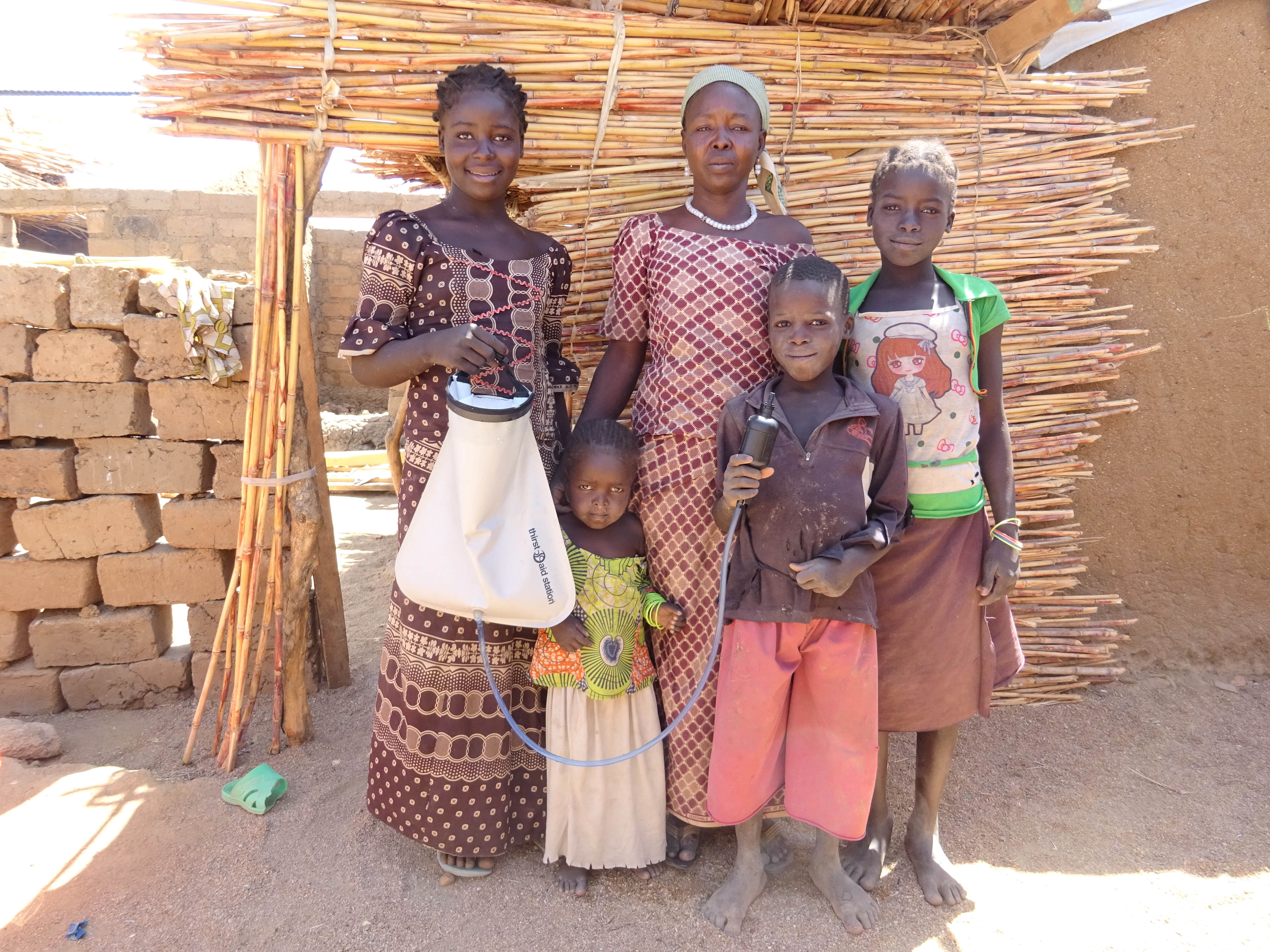
Hoping it might help, Maïramu started using fabric or a sieve to filter water before drinking it with her children. However, there was no change and they continued to suffer.
After receiving a water filter from ShelterBox, Maïramu cannot contain her joy.
This filter has become our doctor. It puts an end to the problem of sickness that we had after drinking water.
Although accessing water continues to be difficult, she feels more secure knowing she now has the water filter.
Donate nowToday, we drink water without fear… The only thing we can say is thank you very much.
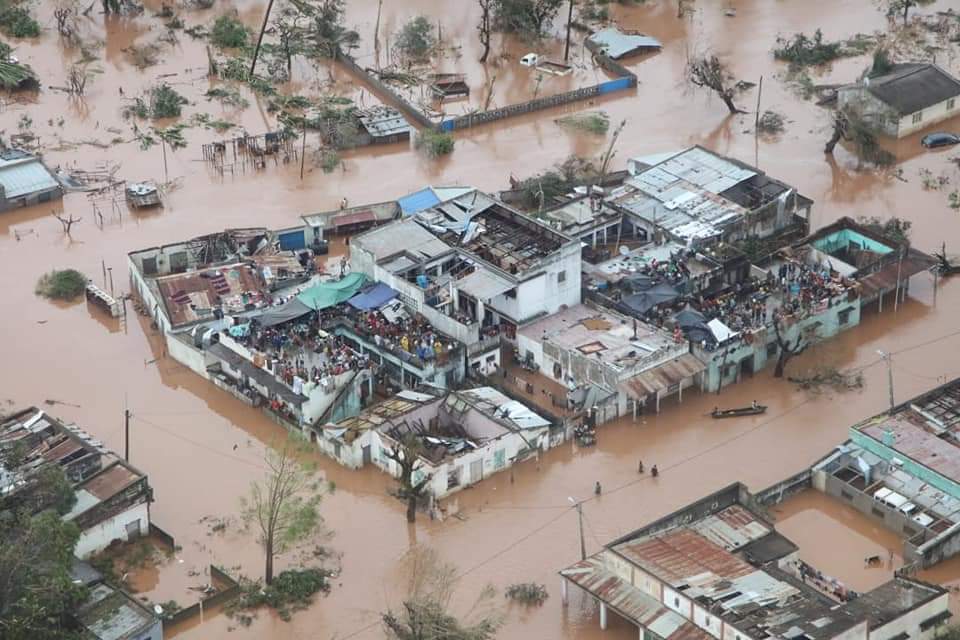

Cyclone Idai
Floods are among the most common and devastating natural disasters. It compromises clean water, putting lives at risk.
Right now, the flooding caused by Cyclone Idai in southern Africa has put thousands of families at risk.
When floodwaters recede, the land is often blanketed in silt and mud. Water can quickly become contaminated with dangerous materials and untreated sewage.
This can lead to outbreaks of deadly waterborne diseases like typhoid, hepatitis A, and cholera.
Floods can also increase the risk of diseases like malaria, as standing water acts as a breeding site for mosquitoes.
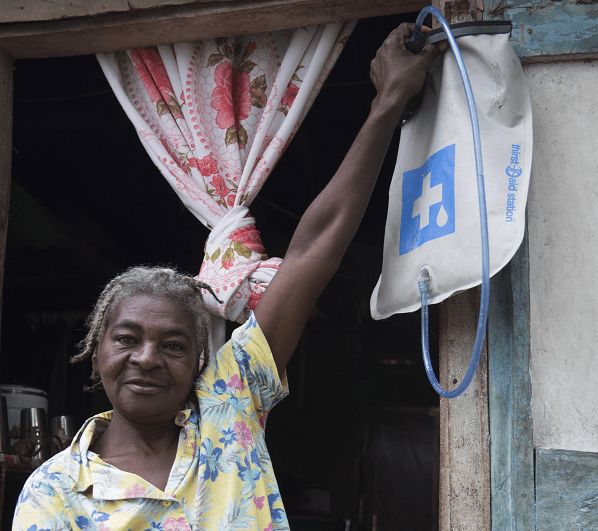
Providing safe water: Our aid
Water filters
When families are unable to access clean water, water filters enables them to produce safe drinking water.
These can remove viruses, bacteria and pathogens that can be found within contaminated water, as well as chemicals, heavy metals and fecal matter.
A water filter can turn up to 1000 liters of unsafe water into clean drinking water – that’s enough for a family of four for a month.
We make sure that the families we support know how to get the best from the water filters, by providing extensive training to whole communities.
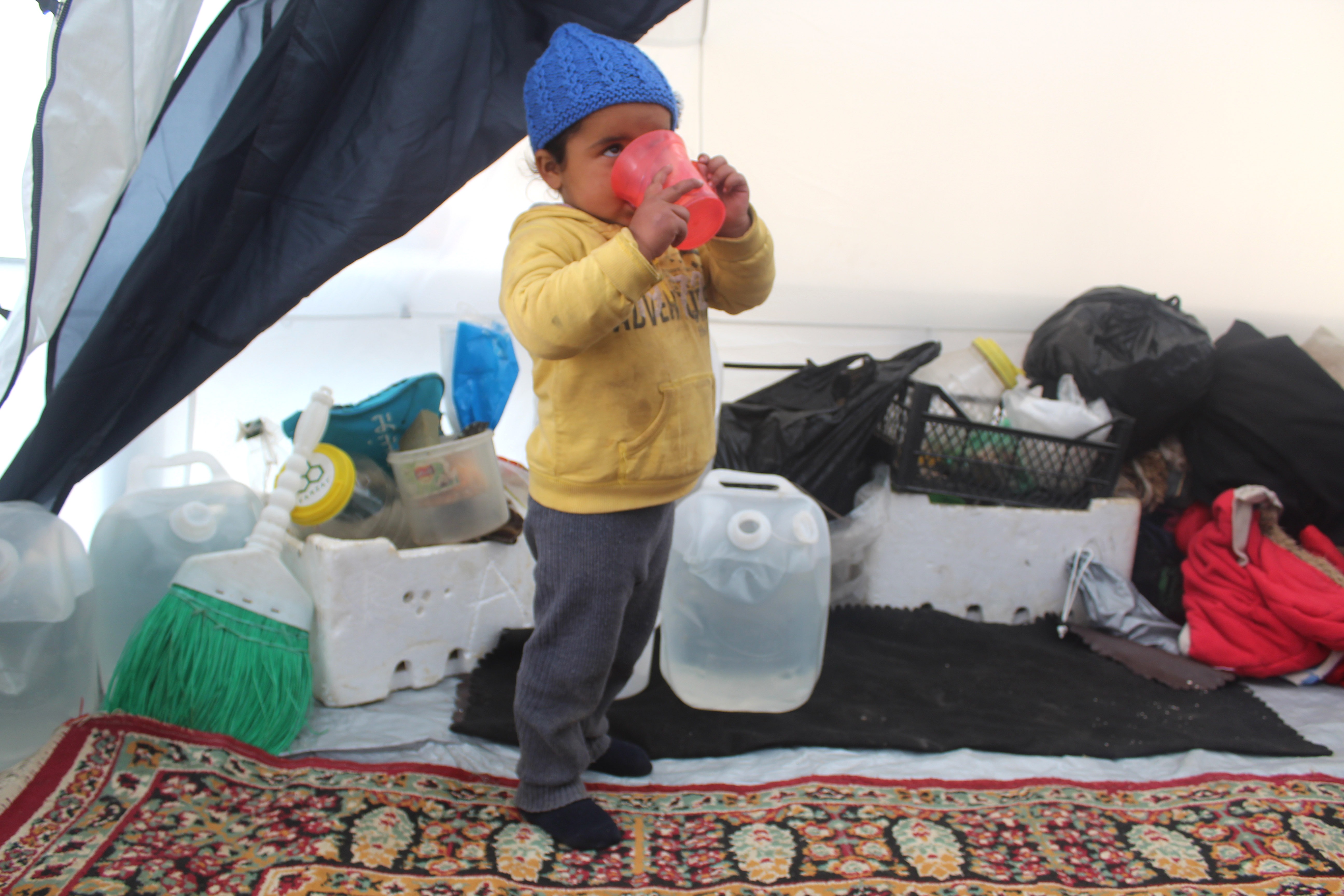
Water carriers
Through working with disaster-affected families, we know that it’s important to always provide water carriers along with water filters.
This makes sure families have a place to store the purified water, so it can be kept clean and safe to drink.
In the Philippines, our collapsible 10-liter capacity water carriers were particularly welcomed by women, who told us they were light and easy to carry.
Sometimes, families even use the collapsed carriers as bowls to eat from or to store food.
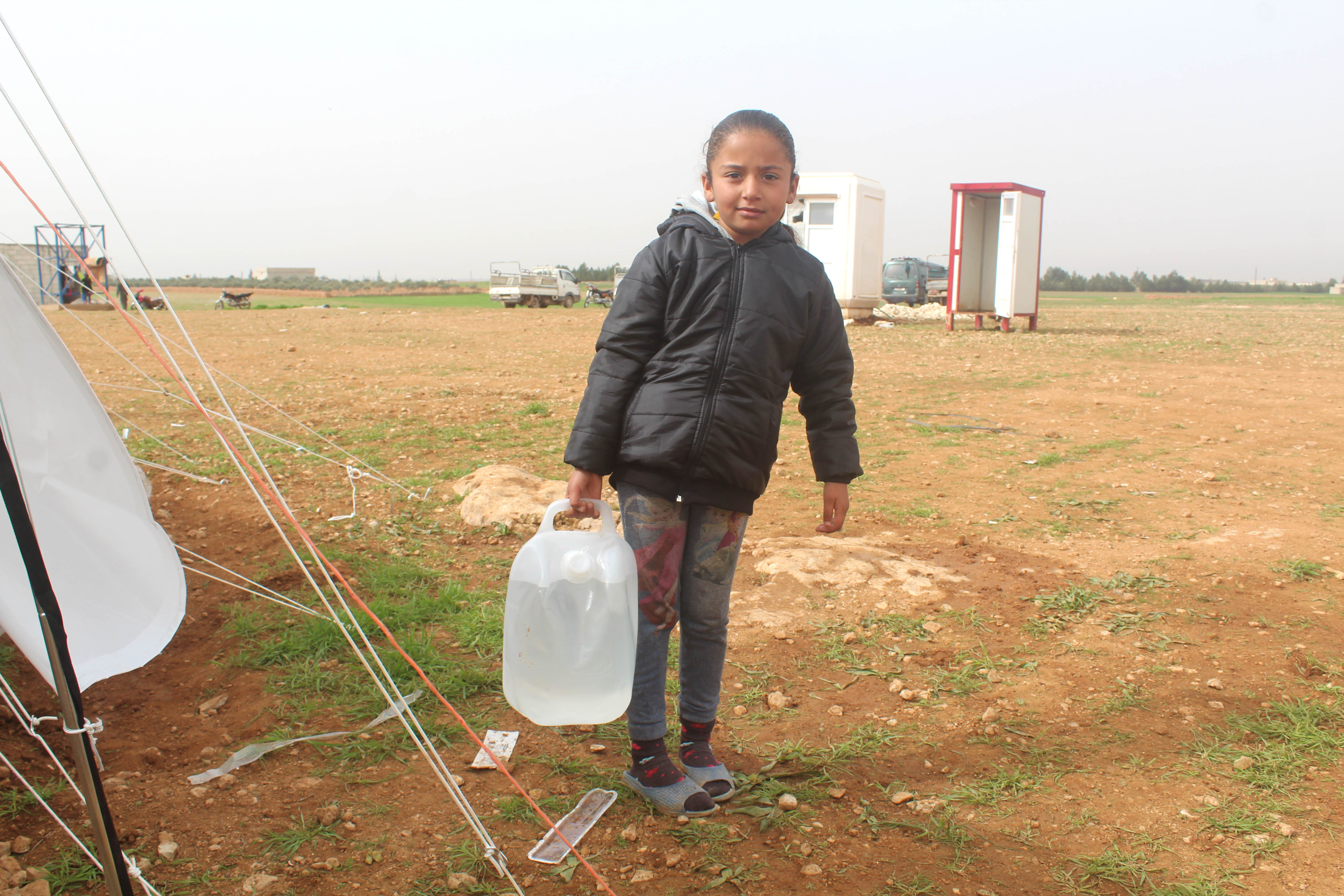

Water and gender
In 80% of water-deprived households, women and girls carry the burden of water collection (UN Women).
Addressing the needs of females in relation to water, sanitation and hygiene is a key driver in achieving gender equity.
Conflicts and natural disasters that exacerbate water scarcity can lead to a double hardship for women. When water is scarce, women and girls may have to travel longer distances to obtain water, which can expose them to danger (UNICEF).
Learn more about why women are disproportionately affected when disasters strike and how you can help.
Take a closer look
Why do communities struggle to access clean water after a disaster?
Whether it’s a cyclone, flooding, or even war, disasters can cause huge amounts of destruction and damage, and clean water is often compromised. This can include when hand pumps are broken, or a local river, well, or spring gets filled with debris, dirt, germs, or even chemicals.
How can disaster-affected families produce safe drinking water when they only have access to contaminated water?
There are three main methods to do this:
Disinfection – making sure water is free from disease-causing bacteria and viruses. This may be done by chemicals like purification tablets, heat by boiling, or even sunlight.
Sedimentation – allowing dirt to fall to the bottom of a water container over time.
Filtration – physically removing dirt by passing the water through a material such as ceramic or sand.
ShelterBox provides water filters because they are the most reliable and safest way to produce clean water.
Do all ShelterBox responses involve distributing water filters and carriers?
No, they don’t. Every response is different, so the decision to distribute these is based on the needs of the affected families and communities.
How long do water filters and carriers last?
If kept in their original packaging between 50°F and 86°F, a water carrier can last up to 10 years. A water filter reaches the end of its lifespan after treating 1,000 liters of water.
How does a water filter work?
JP, a visitor services assistant in the ShelterBox visitor centre, explains how a water filter works.

